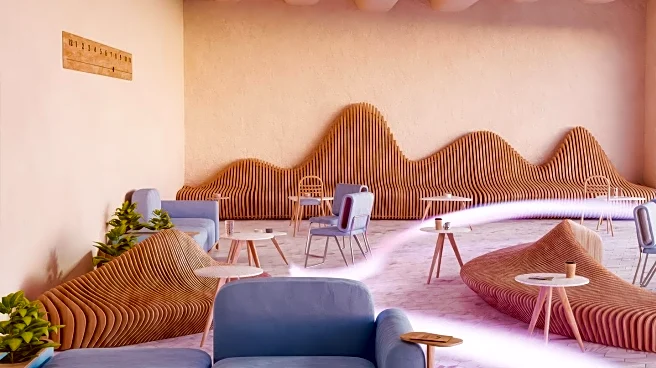What's Happening?
Jerusalem has become a popular destination for a quick urban getaway, offering a blend of historical charm and modern amenities. The newly opened Nucha Hotel, an adults-only boutique establishment by the
Fattal chain, is situated in the heart of the city, providing guests with easy access to key attractions such as the Old City, Machane Yehuda Market, and Zion Square. The hotel features a rooftop bar with panoramic views, a small gym, and a spa, catering to both traditional and younger crowds. The location allows visitors to explore Jerusalem's vibrant streets, historical sites, and culinary offerings, making it an ideal spot for a short vacation.
Why It's Important?
The opening of Nucha Hotel highlights Jerusalem's growing appeal as a travel destination, particularly for those seeking a blend of cultural and leisure experiences. This development is significant for the local tourism industry, as it attracts both domestic and international visitors, boosting economic activity in the area. The hotel's focus on providing a kosher yet energetic environment reflects a broader trend of catering to diverse audiences, including religious and secular tourists. This could lead to increased investment in similar hospitality ventures, further enhancing Jerusalem's reputation as a dynamic urban center.
What's Next?
As Nucha Hotel continues to attract visitors, it may inspire other hospitality businesses to innovate and expand their offerings in Jerusalem. The anticipated opening of the hotel's full restaurant could further enhance its appeal, drawing food enthusiasts to the area. Additionally, the success of such establishments may encourage local authorities to invest in infrastructure improvements, ensuring that the city remains accessible and attractive to tourists. The ongoing development of cultural and leisure facilities in Jerusalem is likely to bolster its status as a must-visit destination.
Beyond the Headlines
The emergence of boutique hotels like Nucha in Jerusalem may signal a shift in the city's cultural landscape, where traditional values coexist with modern hospitality trends. This could foster greater understanding and interaction between different communities, promoting social cohesion. Moreover, the emphasis on location and accessibility underscores the importance of urban planning in enhancing the quality of life for residents and visitors alike. As Jerusalem continues to evolve, it may serve as a model for other cities seeking to balance historical preservation with contemporary development.










